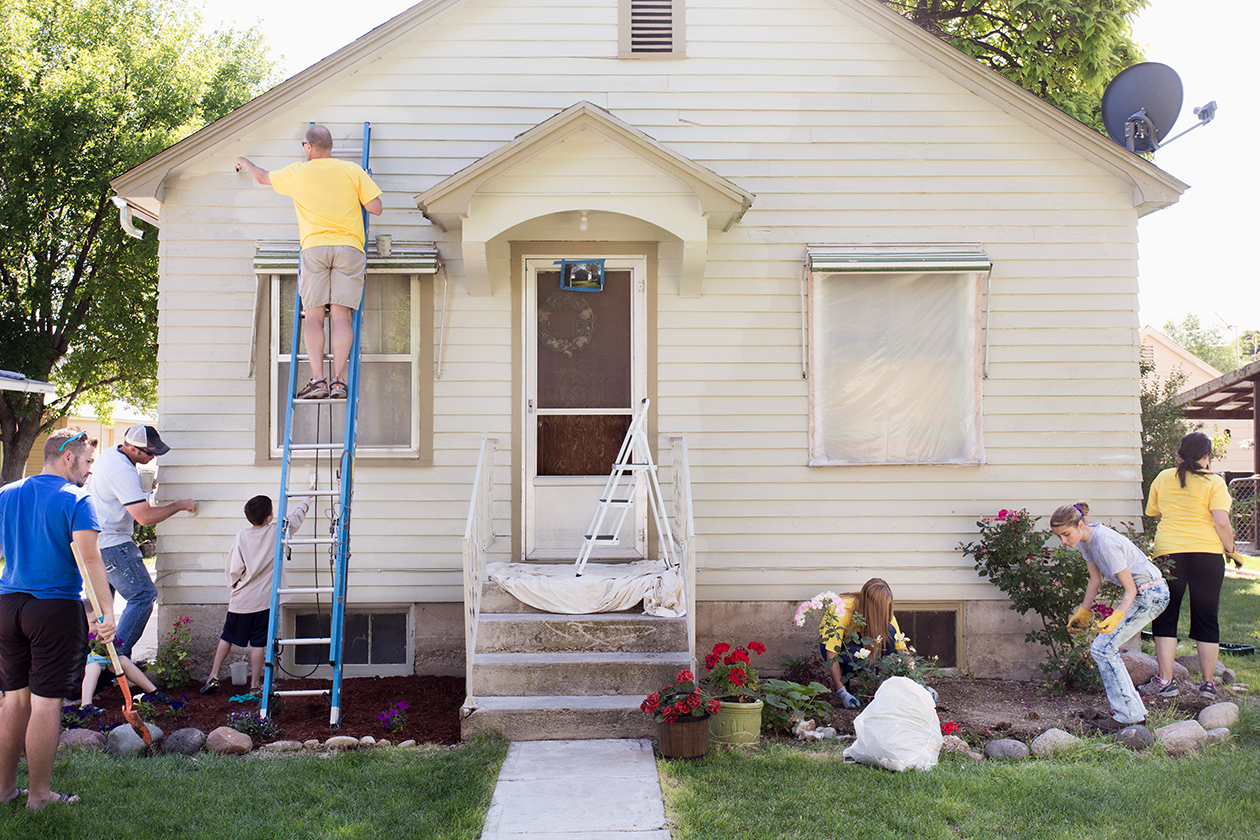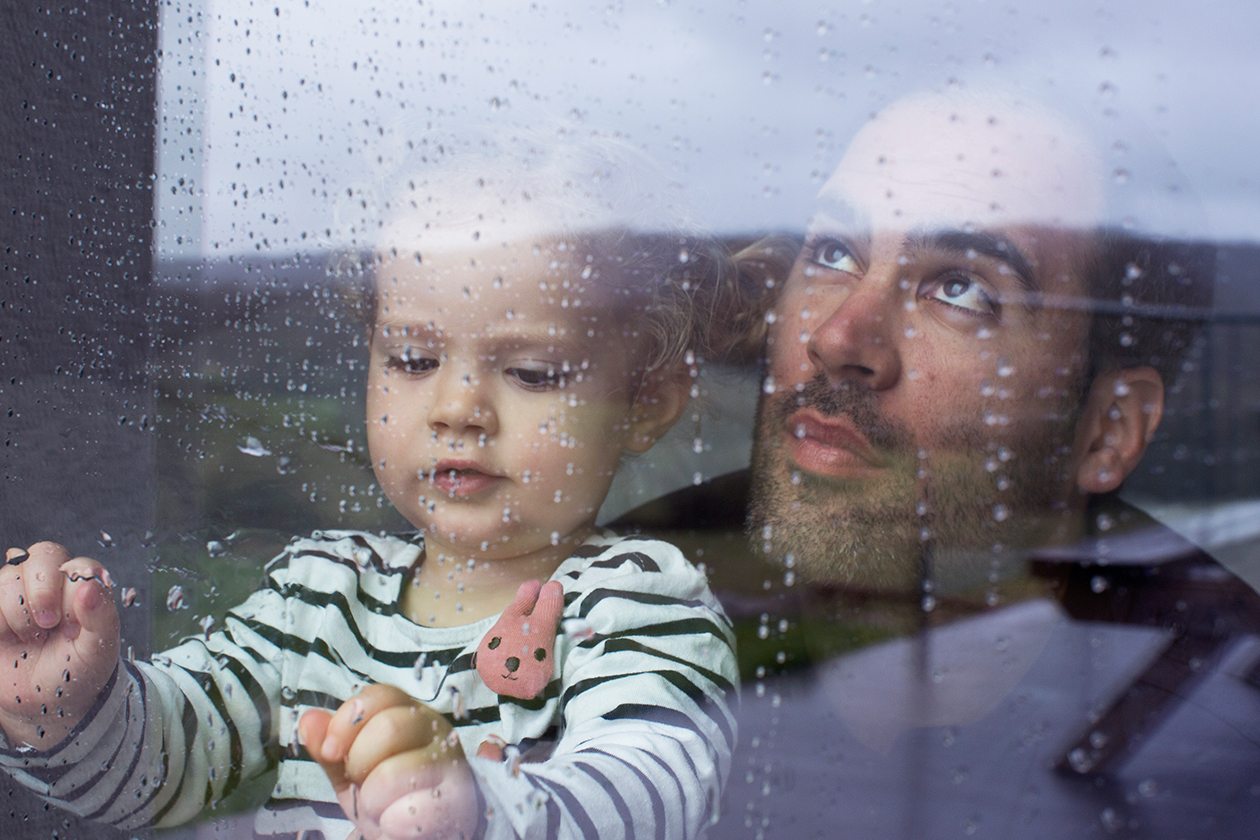Canada’s east coast is known for its charm, hospitality and beautiful coastlines. Surrounded by the Atlantic Ocean, provinces like Newfoundland and Labrador, Prince Edward Island, Nova Scotia and New Brunswick are also at greater risk of hurricanes. Depending on how the weather system tracks, parts of central Canada may also experience gusty winds and torrential rain. Hurricane season typically runs from June to November with some Atlantic provinces experiencing peak storm activity in late August and September.1,2 If you live in a hurricane risk zone, there are things you can do to prepare and mitigate damage to your home and belongings.
Did you know?
Hurricane Fiona was one of the worst weather events to impact eastern Canada, costing Canadians millions in damages.3
How can hurricanes cause property damage?
A hurricane typically develops over the Atlantic Ocean when weather conditions get hot and humid. These rotating low-pressure weather systems, also known as tropical cyclones or typhoons, can bring wind speeds of at least 119 km/hr and torrential rain.4 Hurricanes can also stretch as wide as 1,000 km resulting in widespread damage to property and surrounding areas when it makes landfall.
Strong winds
Powerful hurricane winds and blowing debris can cause damage to your home’s roof, exterior walls and windows.
Heavy rain and storm surges
Torrential rain can increase the chances of overland flooding and dangerous road conditions.
Power outage
Hurricanes can cause widespread power outages resulting in lost power and methods of communication.
How you can prepare your home and stay safe during a hurricane
The U.S. National Oceanic and Atmospheric Administration predicts that upcoming hurricane seasons will continue to increase in intensity and frequency due to changing weather patterns. Preparation and vigilance are key during extreme weather events to help prevent or minimize the impact of a hurricane on your home and keep your loved ones safe.
Before a hurricane
Be hurricane prepared
Hurricanes can often be predicted in advance of their landfall.1 If you live in a community where hurricanes are possible, being prepared is the best way to stay safe. Here are some things you can do ahead of time:
Tips to prepare your home and property from hurricanes
- Keep your roof in good condition. Over time various weather conditions can cause shingles to lift and fall off. If you have concerns about your roof, contact a professional roofer.
- Protect your windows (including glass sliding doors) from debris flying in high winds with storm shutters. If that’s not possible, nail plywood panels to your window frames before the storm approaches.
- Ensure garage doors are securely shut. You may also consider upgrading old garage doors and tracks that are approved for wind pressure and impact protection.
- Secure outdoor property such as patio furniture, barbecues, garbage cans, bikes and toys or bring them indoors.
- Trim shrubbery, cut off weak tree limbs and remove any dead or dying trees that could fall onto your house.
- Park your vehicles in the garage if possible and ensure your car is fueled up in case you need to evacuate.
- Review your home insurance policy with your insurance representative to ensure you have appropriate coverage and understand how to report losses in the event of a hurricane.
Explore more information and tips on how to minimize hurricane damage to your home.
Read more on high winds and water from the Institute for Catastrophic Loss Reduction (ICLR).

During a hurricane

Stay safe during a hurricane
A hurricane watch means that storm activity is possible in your area. A hurricane warning means a hurricane is occurring or will soon be in your area. Even though hurricanes form over large bodies of water, they can track inland and cause damage to coastal areas and communities. Here are a few things to consider so you can respond quickly to an emergency:
Be alert and informed
- Know the potential hurricane risks in your area and stay informed of the latest alerts and calls for emergency evacuation from your local government. Information is also available from the Canadian Hurricane Centre.
- Monitor the hurricane’s progress from trusted local radio and news channels or follow local authority social media accounts for the status of the hurricane and possible road closures.
- Bring your 72-hour emergency kit and other essential items if an emergency evacuation is issued.
Take proactive measures as a hurricane approaches your home
- Be ready to go if advised by authorities, you may have to evacuate. Flooding is always possible, so be mindful of flooded roads or washed-out bridges.
- Avoid the shore and always check the marine forecast from the Weather Office website before going boating. When a hurricane approaches, you’ll want to avoid the coastline in the event of a storm surge.
- Stay on the main floor as it’s the safest place in your home during a hurricane. A hurricane can lift a roof off a home, and the basement can be vulnerable to flooding.
Find more information on how to prepare your property for a hurricane.

After a hurricane
It can be overwhelming after a hurricane passes through your community, but there are still dangers to avoid. You need to remain vigilant.
- Continue to pay attention to your local news or follow local authority social media accounts for the latest information. Wait for officials to say it’s safe before re-entering your home.
- Be prepared for extended periods of rain, power outages, road and business closures.
- Keep an eye out for flooding, landslides, downed power lines or building damage.
- If it’s safe, take photos to document any damages and keep an inventory of belongings you may need to replace. Detailed information about any hurricane damage may help expedite an insurance claim.
- If you suffered a loss, when it’s safe, call your insurance representative as soon as possible to submit a claim. Or, if available, you can also file a claim online.
Read more on what to do before, during and after a hurricane.

Looking for more tips to prepare for extreme weather?
Whatever the season, be prepared and take precautions early to help ensure the safety of your family and property.
Related articles

Home safe in a hurricane: the causes and costs of hurricanes
Explore one of nature’s most powerful storms and the effects hurricanes have when it nears land.

Home safe in a hurricane: How to minimize hurricane damage to your home
Learn more about how you can help protect your home from a hurricane.

Home safe in a hurricane: Guarding yourself upon landfall
Discover ways to prepare and stay safe this hurricane season.
A port in a storm – keeping your boat safe in a hurricane
With hurricanes becoming more intense, it’s as important as ever for boat owners in Atlantic Canada to remain vigilant. Here are a few tips that can help you prepare for a hurricane.
Sources:
1 Government of Canada: Get Prepared
2 Government of Nova Scotia: Helping Nova Scotians Prepare for Hurricane Season
3 Government of Canada: Environment and Climate Change Canada
4 Canadian Hurricane Centre: frequently asked questions
5 Government of Canada: Hurricane forecasts and facts
6 NOAA: Atlantic Oceanographic & Meteorological Laboratory
The content in this article is for information purposes only and is not intended to be relied upon as specific professional or expert advice. Aviva Canada accepts no responsibility for action taken as a result of reliance on any information contained on this webpage. Aviva and the Aviva logo are trademarks used under license from the licensor.

